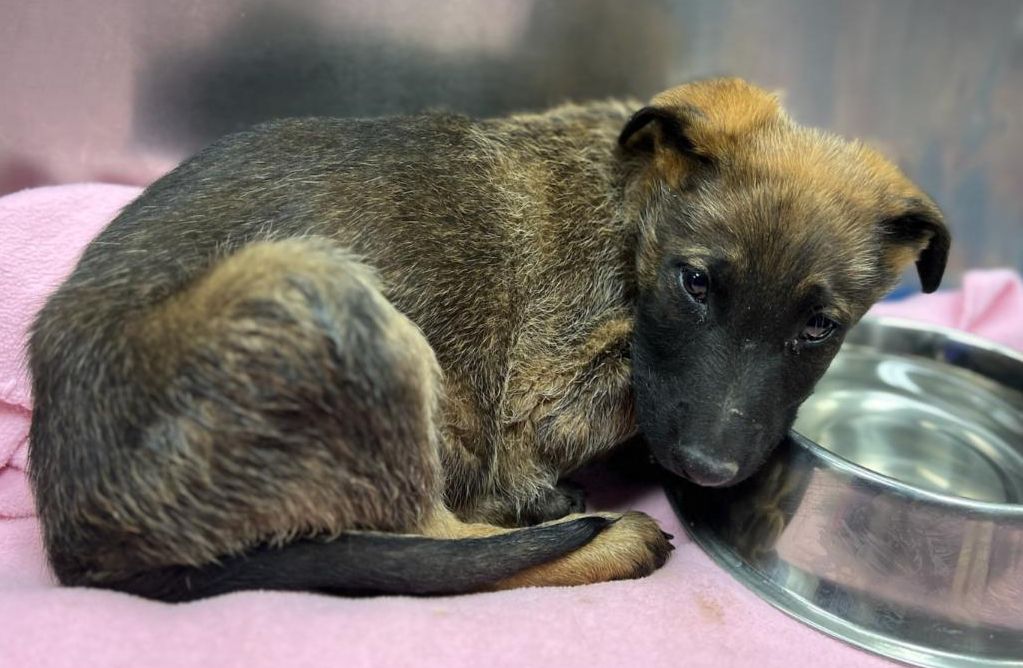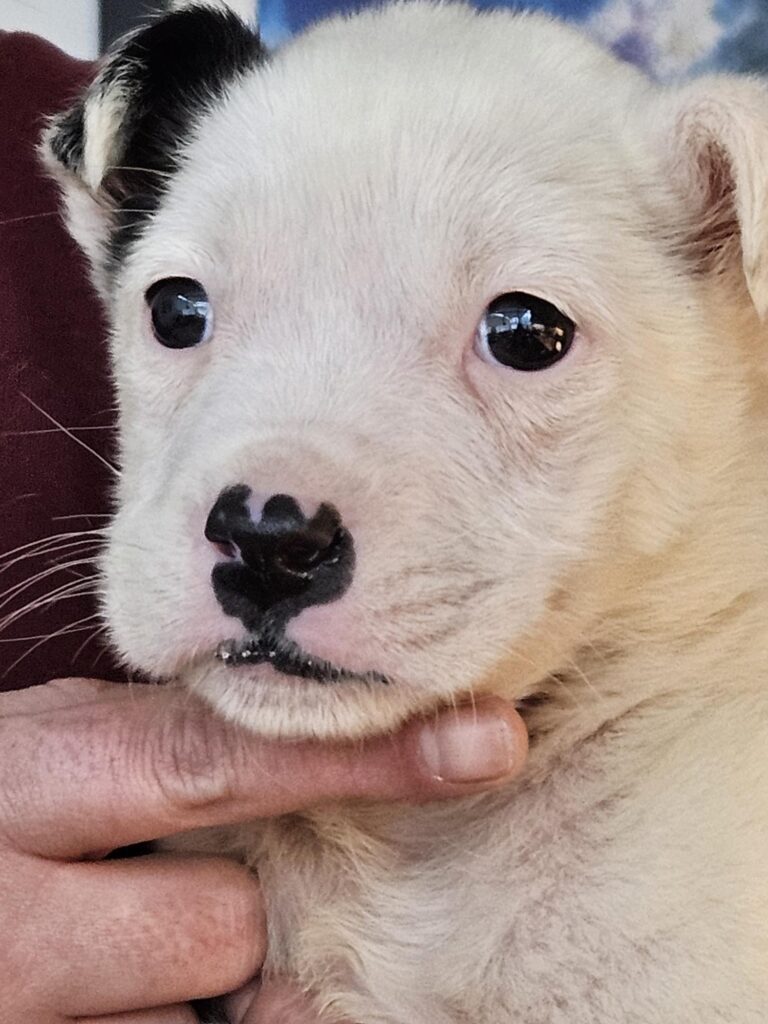Steve’s legacy – Parvo education, prevention and treatment

In early April, a critically ill puppy named Steve came into our care. Though we could tell he was sick, we immediately fell for his sweet demeanor and loving eyes. This made his diagnosis of canine parvovirus, an often deadly infection, so hard to stomach. We rallied our community, raising money for the expensive, essential medical treatments that had the potential to save Steve’s life, but his disease progressed too far. We lost him a few days later.
Steve’s time at the Humane Society and on Earth was short but greatly impacted our community. We want his legacy to be one of education, care and compassion. Through his story, we hope you learn more about the preventable infection that killed him so that future puppies won’t suffer the same fate.
What is canine parvovirus?
Canine parvovirus, often called “parvo,” is a common viral infection among dogs and similar animals like wolves, foxes and coyotes. It attacks the animal’s immune system, damaging white blood cells and the digestive tract. No matter the dog’s age, it’s a dangerous virus to contract. But, it is especially dangerous for puppies with still-developing immune systems.
How does parvo spread?
One of the trickiest things about parvovirus is how easily it spreads. Parvo is an especially strong virus and can live for extended periods of time on surfaces. It’s often passed through the feces of an infected animal (and remember, wild animals can also carry this virus), but an infected animal can leave a trail of the virus wherever it goes. It is cold and heat resistant, and can even withstand drying – meaning that old stool that has dried in grass for several days could still contain live parvovirus. It can live on floors, in dog bowls, crates, mats, collars, leashes, the clothes of caregivers or other surfaces for days, even weeks. It is incredibly hard to know where it lurks and can surprise dog owners. You don’t have to knowingly come into contact with an infected animal for your dog to become sick – it could happen without any animal-to-animal contact.
Is parvo preventable?
Yes. Thankfully, we have an incredibly effective vaccination for parvovirus that prevents serious infection and supports a quick recovery in most dogs. Puppies receive the vaccine series as part of their regular vaccination protocol, including one shot every 2-4 weeks until they are 4 months old and a booster at 1 year. Then, dogs should get boosted at least every three years after that. But, it’s important to consult with your veterinarian about the appropriate schedule for your dog. Their risk level and other factors could require a different regimen.
The time between adoption and completing the vaccination series is vulnerable. That’s why veterinarians recommend limiting a puppy’s exposure to other dogs and not visiting dog parks until it has been fully vaccinated against parvo and other communicable diseases.
It’s important to note here that we all play a part in reducing parvovirus infections. By regularly and routinely vaccinating our dogs and cats, we help keep young and vulnerable animals healthy. It’s also one of the reasons we advocate for picking up and disposing of your dog’s feces, even in your own yard. This can help reduce the spread should your dog ever become infected – they could host the virus without demonstrating any signs of sickness. We can never fully eradicate parvovirus because it’s carried by wild animals, but we can reduce opportunities for exposure by vaccinating our pets and cleaning up after them.
Are there treatments for parvo?
Until as recently as this year, there were no treatments for animals infected with parvo. Exciting new monoclonal antibody treatments approved by the USDA in 2024 can help puppies and other infected dogs recover from parvovirus. It is a literal miracle drug – 100% of the dogs in the clinical trial that received the treatment after a positive parvo test survived the virus.
Steve’s legacy
We hope that Steve’s story and this article will protect the lives of puppies and dogs. The more we know about parvovirus, the better we become at preventing its spread. But Steve’s legacy extends further. Thanks to our community’s gifts in Steve’s honor, our in-house veterinary clinic purchased several canine parvovirus monoclonal antibody treatments. They are expensive and difficult to source – we could not get them in time to save Steve’s life. But now, any animals that come to us infected with this life-threatening disease will have a second chance at a vibrant future.
Resources:
-
American Veterinary Medical Association
-
MyElanco – Canine Parvovirus Monoclonal Antibody Treatment
-
Current State of Canine Parvovirus
-
University of Illinois Urbana-Champaign College of Veterinary Medicine
Donate
Donating to the Humane Society is a meaningful way to make a positive impact on the lives of countless animals. Your generous contributions provide vital support for our mission to rescue, rehabilitate, and find loving homes for abandoned and neglected animals.
